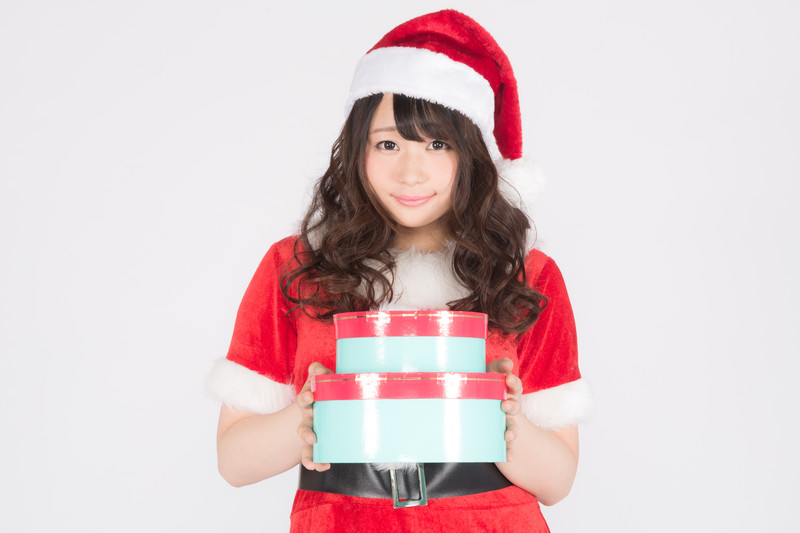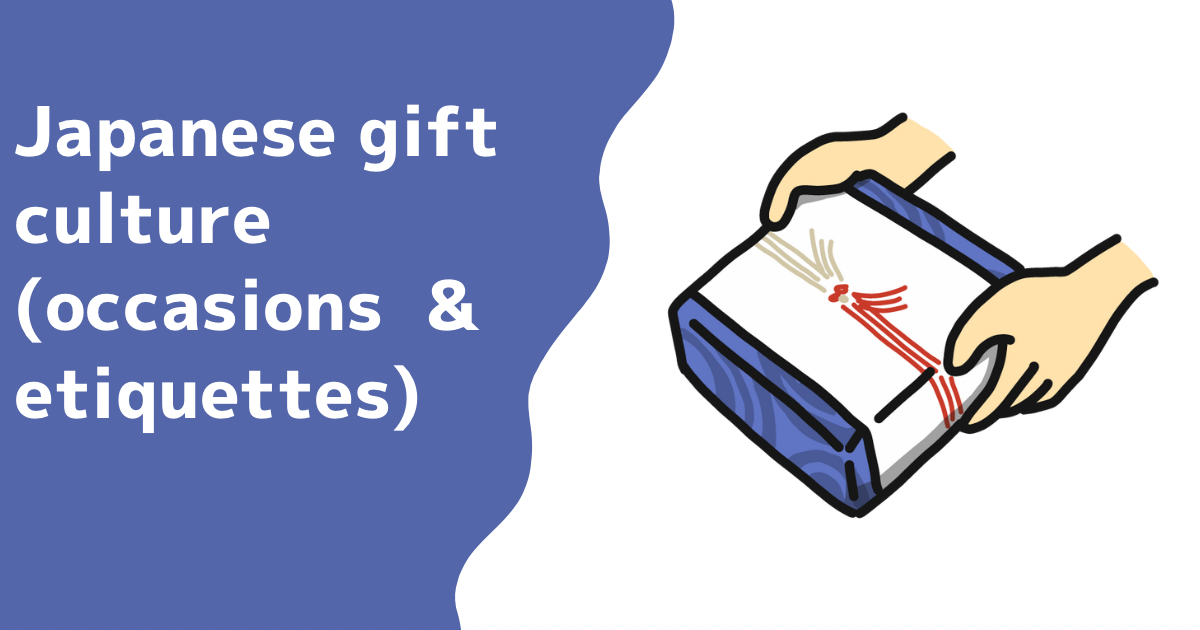If you come to Japan to live or work you might wonder about Japanese gift-giving culture.
Then you could have the below concerns.
-Is there any timing giving a present to your best friend or partner in Japan?
-When visiting a Japanese customer’s company, is bringing a gift necessary?
There is an appropriate time for giving presents to Japanese friends, partners or customers and it could be a good opportunity to build better relationships with them.
In this article, I’d like to introduce Japanese gift culture and hope you will have a successful relationship with your Japanese counterpart after understanding of gift giving timing and etiquette.

Let me introduce myself.
I am Hiro from Tokyo, Japan, born and raised here.
I have working experience in Japanese companies (logistics and manufacturing) as an international sales for almost 10 years, so I well understand gift-giving culture, especially in terms of business.
Japanese gift-giving occasions

We Japanese people frequently exchange presents between friends, family and business partners for keeping a good relationship with each other and I will introduce gift-giving cases in Japan.
Gift-giving between friends, lovers or family (relatives)
We, Japanese people, give gifts to our friends, lovers, or family (relatives) for the following occasions.
Visiting home

When visiting somebody’s home, we usually bring a gift to show gratitude for providing a house for a meeting or serving a meal for you during lunch or dinner.
We usually bring sweets for serving during a meeting or eating.
Bringing a gift is an important behaviour to show politeness even between friends in Japan.
Celebrating birthday
When celebrating a birthday, we give presents to each other.
It totally depends on what kind of relationship you have.
It could be kind of mandatory to give and receive gifts between lovers on their birthdays in Japan.
When I had a girlfriend, I sometimes sent brand accessories (a ring and a necklace) on her birthday.
Christmas Eve and Christmas

We, Japanese people, exchange gifts on Christmas Eve, especially between a couple.
Christmas Eve is an important period for a Japanese couple considering romantic seeing beautiful decorations outside, having dinner in a fancy restaurant and exchanging Christmas presents together on that day.
Also, Japanese parents sneakily give presents to their kids on Christmas Eve while the kids are sleeping at night and the next day the parents tell them the presents are from Santa Clause.
So the majority of Japanese kids believe in Santa Clause giving them presents on that day.
Valentines Day
Valentine’s Day is the day ladies give chocolate to men which the ladies love.
One typical case is that a lot of chocolates are inside an attractive man’s shoe rack in school on valentines day so a lot of men expect at least one chocolate to be inside the shoe rack on valentines day (some girls sneakily give chocolate to a man putting it inside his shoe rack) and it usually ends up nothing except your shoes is inside the shoe rack.
Celebrating marriage

When celebrating marriage, we give a gift to the bride or groom.
If you are invited to a main wedding ceremony and reception, you are required to give gift money (average: 30,000 yen) inside a wedding gift money envelope (the photo of the envelope is attached above).
If you are not invited to a wedding, but still wish to celebrate, you can choose a 3,000-30,000 yen gift depending on the relationship with the bride or groom.
I received a pair of glasses from my colleague when I got married and pair of glasses is one of the classic examples of a marriage gift in Japan.
Mother’s Day and Father’s Day
Mother’s Day is on the second Sunday of May in Japan, and we usually send carnations to mothers. Every year my wife and I send my mother and my mother-in-law carnations and sweets.
Father’s Day is on the third Sunday of June in Japan, and we usually send whatever the fathers like such as sweets, alcohol or snacks. My father loves drinking beer but he recently suffer from gout, so we choose beer without a purine body sending him.
Gift giving in business

If you work in Japan, you could have a lot of opportunities to give gifts to your colleagues, supervisors, customers, etc.
The below types of gifts are preferred in business.
- Consumable (such as sweets)
- Long period before expiry (such as a week)
- Individually wrapped (distributing easily in the office)
There are usually below occasions for giving gifts.
When you were away from office for days
When you were away from the office for several days or more due to personal leave, business trip, etc. and come back to the office, Japanese workers usually provide gifts to the same department workers.
We usually show gratitude to other workers for doing operations instead of us during absence regardless of how supportive or unsupportive they are.
I belong to the international sales department of a manufacturing company and I often go on a business trip to other countries and every time I come back to the office from the trip I give gifts (which I bought during the trip) to the same department workers and it is part of our companies custom.
When you visit customers’ companies

When you visit your customers’ companies you sometimes bring gifts.
It is no obligation of every time bringing gifts to them, but when you need to apologize to your customer or when you visit a customer for the first time, it could be appropriate to bring gifts to them.
Our company is a manufacturing company and we often use the export service of a logistics company and they sometimes bring sweets to us for showing gratitude for using their service.
Mid-year gift and End-year gift
Mid of year gift (Ochugen) or End of year gift (Oseibo) is sometimes sent to customers’ companies.
The gift is for showing gratitude to loyal customers sending gift in July (Ochugen) and in November/December (Oseibo) and there is a role of investment keeping good relationship with customers using your service continuously.
Usually, sweets, alcohol or caned juice is sent as the gift.
There are some of the rules regarding the gifts as follows.
- If the mid-end gift is sent, year-end gift should be sent as well.
- If such a gift is sent once a year, you should send year-end gift only.
- Some companies prohibit receiving such kind of gift, you need to check before sending
- Civil servants are banned from receiving such a gift from business partners. Otherwise, it could be thought of as bribery.
Our company receives both a mid-end gift and a year-end gift from some partners company and they usually give us sweets, juices, etc.
Gift giving etiquette

Not only preparing gifts for the above occasions but also there are some rules to follow when giving gifts such as follows.
Hold a gift with both hands
When you give a gift to your customer during dinner time or meeting, you need to take out the gift from a bag and hold the gift with both hands when giving it to your customer.
It is basically not appropriate to give it together with the bag because the role of the bag is to preserve gifts from dust or outer damage only.
However, it is sometimes appropriate to give it together with the bag when they are meeting outside and the customer cannot put the gift into his/her own bag. At that time you may tell “Please forgive me for giving the gift together with the bag. (袋のまま失礼いたします)”
Give a gift to a higher-status person
If the customer side accompanies several persons, it is appropriate to give the gift to a higher-status person.
The person who gives the present should be also your supervisor if you accompany him/her.
The timing of giving a gift

The best timing to give a gift varies depending on places and situations.
If you visit your customer’s company, you give a gift before having a seat.
If you visit your customer’s company, I know you want to give a gift immediately when meeting your customer at reception, but the best timing is after arriving at a meeting room and before having a seat.
However, if the gift is fresh food which needs to be inside a refrigerator immediately, you should give the gift soon after encountering the customer.
If you have a meal together with your customer, give a gift before leaving
If you have lunch or dinner with your customer, the best timing of giving a gift is after eating is all finished.
If you give it before eating, it could bother your customer how to deal with the received gift while eating.
If you give a gift due to an apology, give it after the apology is accepted
If you give a gift because you need to apologize to your customer, give it after the apology is accepted by him/her.
If you give the gift before apologizing, it looks like you try to solve a problem just by giving a present and it could make a negative impression on your customer.
Conclusion
In this article, I explained Japanese gift culture and especially it seems the etiquette part is difficult to remember.
Even a lot of Japanese don’t understand the appropriate etiquette as well, so you can gradually learn the appropriate way if you plan to live in Japan for a long period.
Thank you for reading this article till the end.



コメント Comment